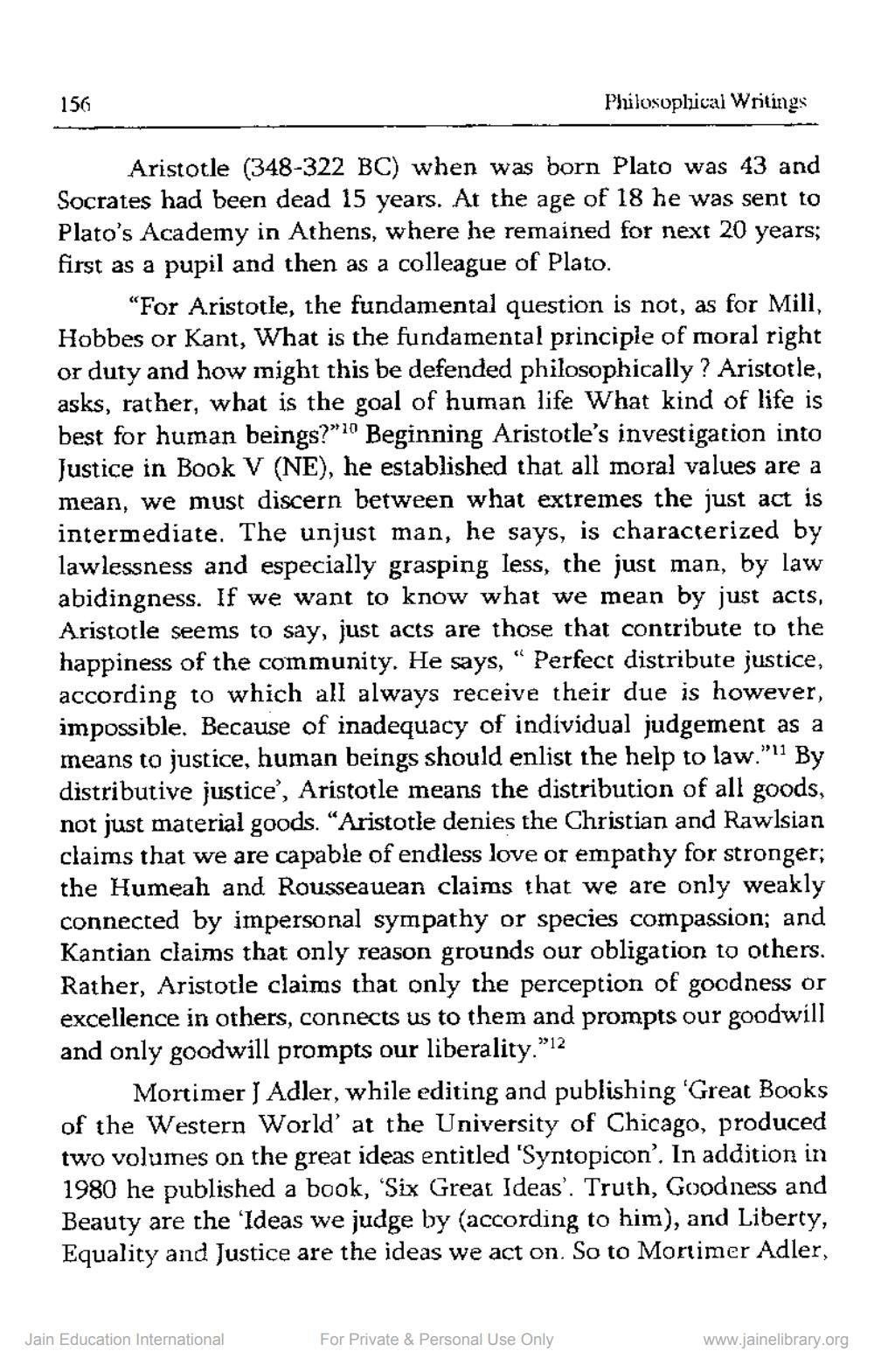________________
156
Philosophical Writings
Aristotle (348-322 BC) when was born Plato was 43 and Socrates had been dead 15 years. At the age of 18 he was sent to Plato's Academy in Athens, where he remained for next 20 years; first as a pupil and then as a colleague of Plato.
"For Aristotle, the fundamental question is not, as for Mill, Hobbes or Kant, What is the fundamental principle of moral right or duty and how might this be defended philosophically? Aristotle, asks, rather, what is the goal of human life What kind of life is best for human beings?"1" Beginning Aristotle's investigation into Justice in Book V (NE), he established that all moral values are a mean, we must discern between what extremes the just act is intermediate. The unjust man, he says, is characterized by lawlessness and especially grasping less, the just man, by law abidingness. If we want to know what we mean by just acts, Aristotle seems to say, just acts are those that contribute to the happiness of the community. He says, “ Perfect distribute justice, according to which all always receive their due is however, impossible. Because of inadequacy of individual judgement as a means to justice, human beings should enlist the help to law."'1 By distributive justice', Aristotle means the distribution of all goods, not just material goods. “Aristotle denies the Christian and Rawlsian claims that we are capable of endless love or empathy for stronger; the Humeah and Rousseauean claims that we are only weakly connected by impersonal sympathy or species compassion; and Kantian claims that only reason grounds our obligation to others. Rather, Aristotle claims that only the perception of goodness or excellence in others, connects us to them and prompts our goodwill and only goodwill prompts our liberality. "12
Mortimer J Adler, while editing and publishing 'Great Books of the Western World' at the University of Chicago, produced two volumes on the great ideas entitled 'Syntopicon'. In addition in 1980 he published a book, "Six Great Ideas'. Truth, Goodness and Beauty are the 'Ideas we judge by (according to him), and Liberty, Equality and Justice are the ideas we act on. So to Mortimer Adler,
Jain Education International
For Private & Personal Use Only
www.jainelibrary.org




